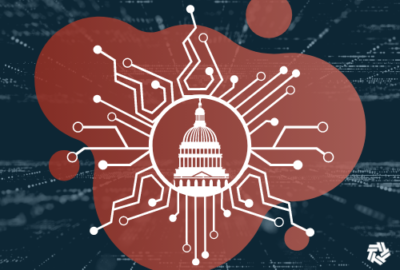Best listening experience is on Chrome, Firefox or Safari. Subscribe to Federal Drive’s daily audio interviews on Apple Podcasts or PodcastOne.
- The Council of the Inspectors General on Integrity and Efficiency shares a few updates coming to oversight.gov. As the governmentwide website compiling IG reports hits its fifth anniversary, new tagging and website refresh capabilities will soon be available. CIGIE said since the website launched in 2017, 72 IG offices have shared over 23,000 reports, with roughly 17,000 open recommendations for agencies. The platform has also created 12 independent OIG sites, with six more in development, and another 16 requesting their own platform.
- The National AI Initiative Act is nearing its two-year anniversary, but there are still significant barriers to its implementation. For agencies that are looking to use artificial intelligence more often, first understanding the skills gaps that exist in your workforce is key. “What we have is a large number of federal agencies that are still struggling with antiquated architectures and lack of skills and talent,” said Chakib Chraibi, the National Technical Information Service’s Chief Data Scientist. Chraibi said agency leaders should first learn about the needs and requirements for implementing AI, and then offer training, upskilling and hiring based on internal assessments. (Federal News Network)
- AT&T public sector has a new leader. The company named Zee Hussain to replace Jason Porter, who will be transitioning to a new leadership role. Hussain has worked for AT&T for more than 20 years, most recently leading the enterprise sales team focused on customers in the healthcare, manufacturing and transportation sectors. Additionally, AT&T named Jim Bugel as president of FirstNet. Bugel has been with the FirstNet program since 2017 as its vice president. He oversaw strategy, policy and implementation for all state, local and federal public safety initiatives as well as the FirstNet Response Operations Group.
- State chief information officers are finding similar challenges and opportunities as their federal counterparts. State CIOs said improving the citizen experience through digital transformation and moving away from legacy IT systems are among their top priorities. The 13th annual state CIO survey from the National Association of State CIOs and Guidehouse highlights the changing priorities at the state level. Respondents said recruiting and retaining a workforce with the right skillsets remain major challenges. Some are using non-monetary incentives such as reskilling and upskilling and flexible schedules. NASCIO and Guidehouse surveyed 51 state and tribal CIOs asking about their post-pandemic plans and priorities.
- The Office of Management and Budget has tapped a Hill veteran and an international trade expert to be its new Made in America director. OMB said Livia Shmavonian will replace Celeste Drake, who is stepping down after 18 months on the job. Shmavonian comes to OMB after spending the last 13 months as the director of legislative and governmental affairs at the Commerce Department’s International Trade Administration. She also served as senior advisor to the Undersecretary of Commerce, working to advance American competitiveness. Before joining the Biden administration, she was staff director for the Senate Finance Subcommittee on International Trade, Customs and Global Competitiveness and senior advisor to Sen. Bob Casey (D-Penn.).
- New supply chain initiatives for the Department of Homeland Security are advancing as part of the Senate’s annual must-pass defense authorization act. The DHS Trade and Economic Security Council Act of 2022 is among the dozens of bills now hitching a ride to the Senate NDAA. The act would give DHS’s Trade and Economic Security Council a bigger role in identifying and responding to risks to U.S. supply chains. The Senate’s defense bill also now includes legislation that would require any invention funded by DHS’s Science and Technology Directorate to be manufactured in America.
- Agencies are proposing a new federal cyber workforce pay model to attract more talent. The Department of Veterans Affairs leads several agencies in submitting a Special Salary Rate proposal to the Office of Personnel Management that would set a higher pay rate for federal IT management workers. Chris Paris, senior adviser for cyber workforce management in the VA’s Office of the Chief Information Officer, told reporters that the agencies expect to hear a decision back from OPM by the end of the calendar year. “If approved and implemented, it would really mark a huge increase in pay across the general schedule,” Paris said. (Federal News Network)
- The Social Security Administration still has a problem figuring out who died and when to stop paying them, as the agency paid out an estimated $14 million to dead beneficiaries. Most of that group of 1,300 deaths was reported in SSA’s alert system in June 2021, according to an internal audit. The agency’s inspector general’s office recommends recovering improper payments and making sure the alert system integrates with the payment system to stop future payments after death alerts are recorded.
- The Department of Homeland Security is growing its Hacking for Homeland Security program. Launched in 2020, the H4HS course started out at the Colorado School of Mines, before it expanded to Carnegie Mellon University last year. This fall, courses will also be available at the Rochester Institute of Technology and Texas A&M University, teaching students how to tackle homeland security challenges.
- The Inflation Reduction Act gave the Postal Service billions to electrify its fleet. Now Rep. Carolyn Maloney (D-N.Y.) wants to know what USPS will do with the money. She’s asking how many more electric vehicles USPS will buy with the $3 billion it got and how it will build out the charging infrastructure. Maloney has also asked whether USPS plans to make its chargers available for public use.
Copyright
© 2025 Federal News Network. All rights reserved. This website is not intended for users located within the European Economic Area.



